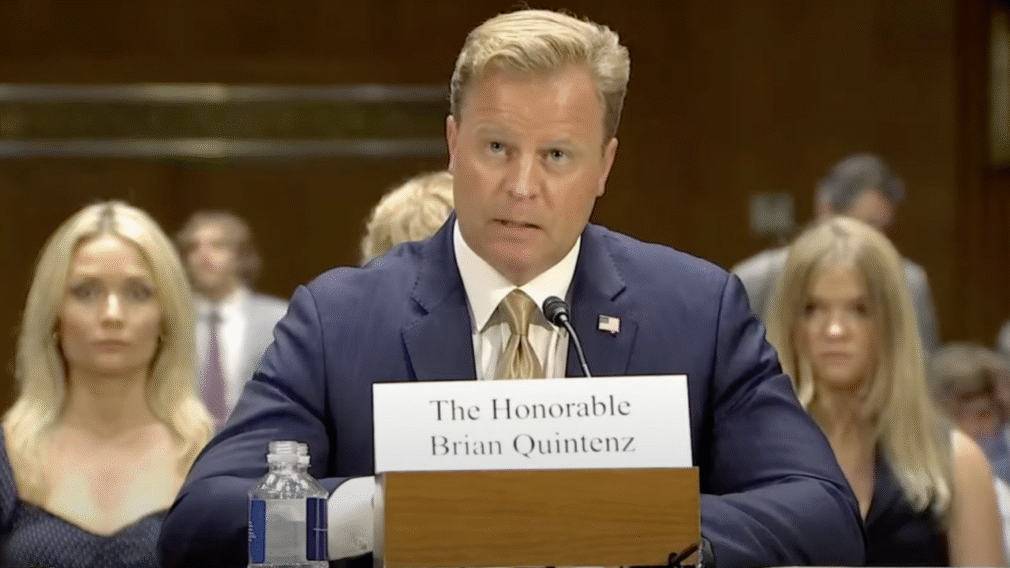White House Requests Delay on Quintenz CFTC Nomination Vote
The Senate committee’s vote on Brian Quintenz’s controversial nomination to lead the Commodity Futures Trading Commission (CFTC) was abruptly postponed for a second time on Monday, this time at the request of the White House.

A Second Delay in a Week
Quintenz’s name was pulled from the committee’s voting schedule shortly before the meeting was set to begin. Senator John Boozman, the committee’s top Republican, announced that the White House had asked him to delay the vote but did not provide a reason for the request.
This marks the second postponement in just one week. A vote scheduled for July 21 was also canceled after a flight delay prevented Senator Cindy Hyde-Smith (R-Mississippi) from attending.
With Democrats unified in their opposition, Republicans need all 12 of their committee members present to approve the nomination on a party-line vote. Despite the delays, Quintenz remains President Donald Trump’s nominee for the position.
A Confirmation Battle Fueled by Kalshi Ties
At the heart of the opposition to Quintenz’s nomination are his deep connections to Kalshi, a federally regulated prediction market. Quintenz currently serves as a board member and shareholder in the company, which has aggressively pushed into the sports betting space by offering event contracts that function like traditional wagers.
This has drawn a powerful coalition of opponents, including the American Gaming Association, the National Council on Problem Gambling, and 17 tribal gaming groups. They fear that Quintenz, who has publicly supported such markets, will allow the CFTC to become a backdoor for federally regulated sports betting that bypasses state laws. Quintenz has pledged to resign from Kalshi’s board and sell his shares if confirmed.
The ongoing delays leave the CFTC in a state of leadership limbo. The agency is currently operating with only two commissioners, both of whom are expected to leave their posts within the next year. This creates the unprecedented possibility that if Quintenz is eventually confirmed, he could become the sole commissioner of the agency.
This would grant him immense unilateral power to shape the future of prediction markets, digital assets, and the broader derivatives landscape. It is this concentration of potential power in a nominee with such clear industry ties that has fueled the fierce opposition from Democrats and gaming industry stakeholders.
Recommended
